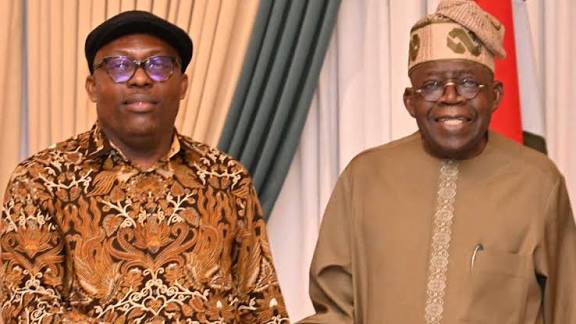
Samuel Omang
The lingering political storm in Rivers State took a new turn on Thursday as the Federal High Court in Abuja dismissed a suit filed against President Bola Tinubu over his controversial declaration of a state of emergency in the oil-rich state.
The suit, instituted by Belema Briggs and four others, sought to challenge Tinubu’s March 18 proclamation, which suspended Governor Siminalayi Fubara, his deputy Ngozi Odu, and members of the Rivers State House of Assembly for six months.
The president had at the time appointed a sole administrator to steer the affairs of the state, a decision that immediately triggered outrage and over 40 lawsuits, including one by the opposition Peoples Democratic Party now pending before the Supreme Court.
Delivering judgment, Justice James Omotosho ruled that the five plaintiffs lacked the legal authority to sue on behalf of Rivers people. According to him, none of them was a member of the state executive or legislature, nor could they prove any injury greater than that suffered by the general public.
He further noted that the claim that Tinubu acted to prevent a breakdown of law and order was never challenged, making the case “frivolous and baseless.” The judge added that the plaintiffs also failed to secure the consent of the state’s Attorney General before approaching the court.
Although Tinubu had lifted the emergency rule on September 18, Thursday’s ruling nonetheless underscored the federal government’s position that its actions were legally justified. The court’s verdict, coming just days after the president reaffirmed his determination to maintain order in Rivers, is seen as a significant victory for the presidency in its battle with political rivals in the state.
But while the legal dust was settling in Abuja, the political ground in Port Harcourt was shifting once again. Governor Siminalayi Fubara, recently reinstated after the expiration of the emergency rule, wasted no time in stamping his authority.
Just a day before this judgment, he dismissed several commissioners and top aides in what many observers see as an attempt to consolidate power and shake off months of political turbulence.
The twin developments — the Abuja court’s dismissal of the suit against Tinubu and Fubara’s sweeping changes in Government House — highlight the fragility of Rivers politics. With more cases still in court and the PDP’s challenge awaiting Supreme Court hearing, analysts warn that the crisis is far from over.
For now, however, Tinubu has secured judicial backing for one of his most contentious decisions, while Fubara appears intent on reasserting control over a state that has remained the epicenter of Nigeria’s political drama in 2025.
